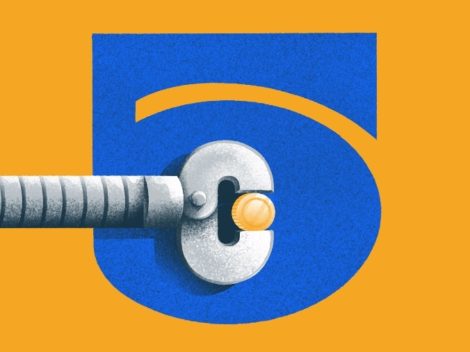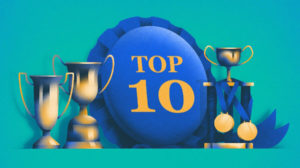From a consumer perspective, there’s never been a worse time to be online. I’m far from the first to write about this — it’s a phenomenon dubbed “Enshittification” by Cory Doctorow and written about at length by folks like Ed Zitron and others.
The premise is simple. The quality of your experience as an internet user relies on user-generated content, or UGC. Whether you’re looking for information, entertainment or something in the middle, the vast bulk of content you’ll engage with is created by someone else, for free.
What drives people to create online? In the early days of the internet, it was — basically — for bragging rights, and because they could. Forum posting was an exercise in creativity and humor. The incentive structure, for the most part, worked — and you still see companies trying to create that (e.g., Reddit, where karma is currency).
The only constant
Why did this change? We realized that a captive audience is a good audience to advertise to. “Eyeball time” became an incredibly valuable commodity. We built walled gardens so we could more effectively manage communities to advertise to. Your identity online became that of a consumer, not a user.

Today, people spend their time in walled gardens — consuming content that the algorithm predicts will keep them online, interspersed with ads. Quality UGC is harder to come by. (Accounts like @dieworkwear on Twitter/X are the exception, not the norm.)
Recipes are SEO-bait, most reviews feel like some type of influencer marketing, and we’re all worse off for it.
And the prevailing sentiment is that the experience of being online is about to get a lot worse, really quickly.
Why? Generative AI has made content creation essentially free. Trained on enormous datasets — much of the internet, i.e., UGC — large language models can write and rewrite new versions of whatever we want them to.
Marketers are — as they should — using these tools to create content that furthers their brand goals. Search engines and walled gardens will ingest and regurgitate it. It’s an ouroboros, and we’re living in it.
Doing it right
There is, however, a bright silver lining to this dark cloud. LLMs are extremely good at constructing content based on the data they can access. What if we lowered the bar for people to create high-quality, socially valuable content, and used LLMs to serve that to people?
Take, for example, the grilled cheese sandwich. There are hundreds of variations of grilled cheese recipes online. If you ask an LLM to give you a grilled cheese sandwich recipe, it’ll write a statistically representative version from its dataset.
But do we want LLMs to help us create the median grilled cheese? Or do we want to inject the nuances of an experienced chefs’ intuition — e.g., how to get a Maillard reaction in the bread — into LLMs’ information diets so that we can raise the bar for a quick weeknight meal?
How often does our online content tell us what to do without explaining why we should do it? If we want a better internet, we should encourage a Chesterton’s fence lens to content creation (tl;dr, understand root causes before you act).
This will require a new business model. We need to encourage more proactive roles online than simply being internet consumers. It’s what we have to do if we want a better internet.
That’s what we’re doing at GetWhys, where we’ve built up a community of business decision-makers who are sharing valuable information that doesn’t exist online (for example, B2B software pricing, or how to build a channel motion with a GSI), and using LLMs to serve those answers back to people who need it. There are certainly other use cases.
Walled gardens might be an inevitable byproduct of a better internet. But it’s on us to make sure the content they serve is high-quality — not sh*t.
Philippe Boutros is the co-founder CEO of GetWhys, which he founded to solve problems he experienced firsthand as head of marketing at Transform Data, a startup acquired by dbt Labs. Before wearing that hat, he spent 7.5 years as a consultant to B2B technology companies, using market research to help companies from Amazon to Zendesk build, market and sell. Boutros has a bachelor’s degree in philosophy from the University of Portland and is fluent in Arabic, French and English.
Illustration: Dom Guzman

Stay up to date with recent funding rounds, acquisitions, and more with the Crunchbase Daily.


![Illustration of a robot typing on a laptop. Generative AI [Dom Guzman]](https://news.crunchbase.com/wp-content/uploads/generative-ai-v1-990x557.jpg)








67.1K Followers